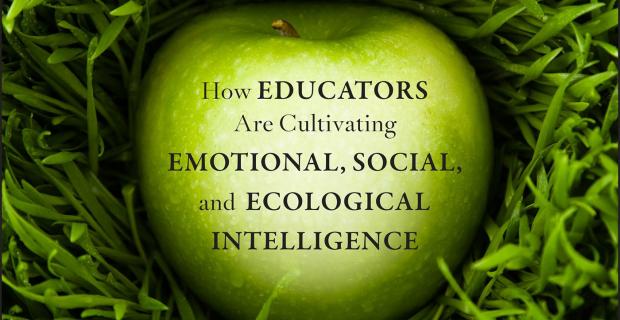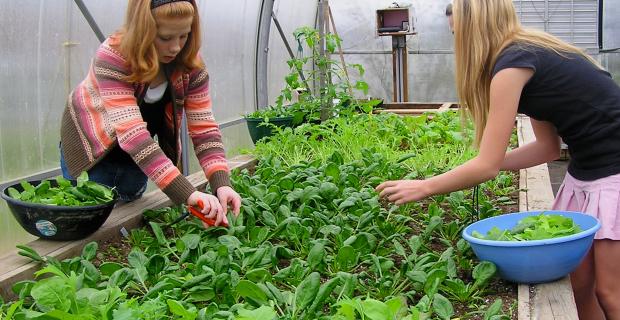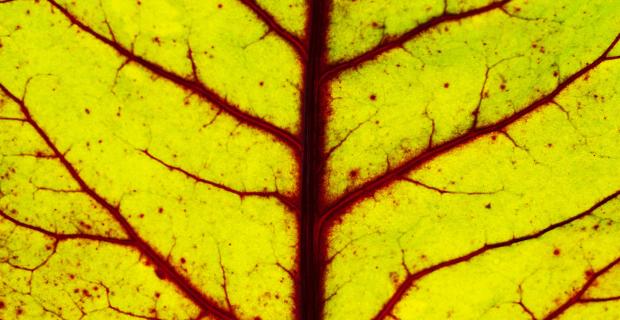Ecoliteracy for All in San Francisco

San Francisco has a longtime reputation for progressive change on many fronts — so it's no surprise that environmental sustainability is a top priority in the city's schools.
While this commitment emerged over a decade ago, it has gained great momentum in recent years within the San Francisco Unified School District (SFUSD), which serves 55,000 students in 120 schools. In 2011, the district created a new position, ecoliteracy content specialist. In August of 2012, Sarah Delaney was hired for the position and charged with creating and supporting "an ecoliteracy education framework that can be incorporated across the standard-based curriculum." Having worked with many SFUSD teachers as curriculum developer and teacher educator at the California Academy of Sciences, she was already well versed on weaving sustainability into K–12 education. But even she needed more clarity.
"My first question was, what exactly is 'ecoliteracy'?" she recalls. "I gathered a group of leaders and thought partners, and we looked at different ways of answering that question. We finally found a nice way of defining it in Ecoliterate: How Educators Are Cultivating Emotional, Social, and Ecological Intelligence [coauthored by Daniel Goleman and the Center for Ecoliteracy's Lisa Bennett and Zenobia Barlow]. Since our district has a history of appreciating social and emotional intelligence, we could say, 'This is something we’ve been doing already. Let’s just bring in ecological principles!' I used the five Ecoliterate practices as a guiding framework and starting point for explaining what 'ecoliteracy' means. Many teachers responded positively to them because they’re more holistic and applied across disciplines."
To capitalize on this growing interest, in May 2013 Delaney orchestrated the first conference devoted to environmental literacy in the city's schools. More than 100 enthusiastic educators flocked to James Lick Middle School, where Bennett, communications director for the Center for Ecoliteracy, delivered the keynote address. The conference also offered workshops on teaching watershed curriculum, sense of place, and other topics; inaugural "Eco-Hero Awards" for exemplary teachers, students, administrators, custodians, and community members; and a (much-praised) lunch from Revolution Foods, the district's healthy food service provider since January 2013.
SFUSD's sustainability movement aims to promote student ecoliteracy and reduce the district’s environmental footprint. In 2008, SFUSD hired Nik Kaestner as its first director of sustainability. The following year, it crafted a vision statement for its environmental curriculum — "Ecoliteracy for All: Every Kid, Every Year, The City as our Classroom." It adopted a definition of environmental literacy from the UN and supported place-based learning grounded in nature. And it developed the new ecoliteracy content specialist position to make that vision a reality.
There are ambitious efforts throughout SFUSD to plant more trees, install rainwater-harvesting cisterns, improve energy efficiency, and support alternative transportation to school (48 percent of students currently do not come in cars; the goal is 75 percent). In addition to the district-wide recycling program, SFUSD runs a Food to Flowers composting program, with a target waste diversion rate of 85 percent. The sustainability movement's Green the Next Gen website — the name was inspired partly by the new Next Generation Science Standards — is chock-full of teaching tools, student programs, school greening tips, professional development opportunities, and best practices. It also provides operational report cards for every school to track electricity, natural gas, and water usage. And in two-thirds of the district's schools, over 80 "environmental liaisons" serve as program coordinators and advocates.
For Delaney, seeking out strategic partners has been key to making an impact. She has actively facilitated the 4S (San Francisco Science, Stewardship, Sustainability) Collaborative — a cross-organizational partnership between SFUSD and informal environmental education organizations, including the California Academy of Sciences, Exploratorium, and Education Outside (formerly known as the San Francisco Green Schoolyard Alliance), which will boast a dedicated staffer in 21 elementary schools next year. The district also partners with the National Park Service Golden Gate National Recreation Area to offer environmental education for students in local parks as well as a hands-on Environmental Science Center at Fort Funston.
Delaney has worked to bring a rich array of resources to the attention of teachers. For example, the San Francisco Opera's ARIA program teaches students how to write, compose, and perform their own operas. Since these productions are often inspired by picture books, Delaney has helped to curate a list of environment-themed books based on David Sobel's levels of developmental appropriateness. She joined forces with KQED Education, a program of the local PBS affiliate, for a workshop series on mapping sounds of the schoolyard. She also designed a summer Ecoliteracy Institute for K–2 teachers, and collected success stories from the field.
After about a year as ecoliteracy content specialist, Delaney was promoted in 2013 to the position of science program administrator for the district. The ecoliteracy program continues under her successor. "It hasn't been about me creating something and asking teachers to teach it," says Delaney. "I've focused on empowering them with the skills and abilities they need to integrate sustainability on their own."




